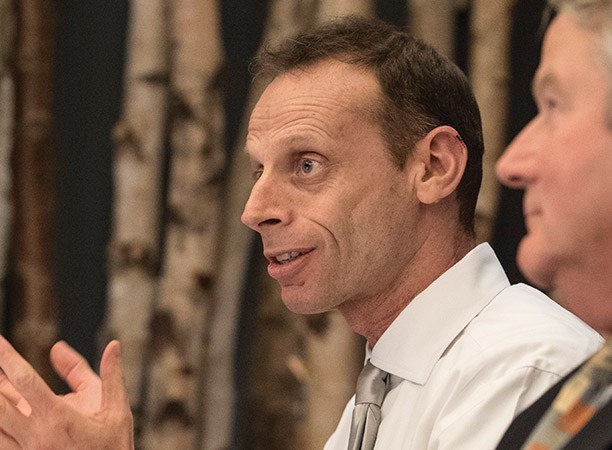Another of 2016/17’s standout performers, Fieldfisher had an impressive year underpinned by considerable geographic expansion. The firm recorded a 34% increase in turnover for the last financial year, rising from £121.5m to £165m against a 10% increase in lawyer headcount, to strengthen its position in the upper mid-market.
The firm’s profit per equity partner has also grown significantly, rising 16% from £551,000 to £639,000, while profit per lawyer increased 19% from £78,000 to £93,000.
It is clear that Fieldfisher’s rainmakers have benefited from the firm’s financial success, with the top-of-equity figure shooting up 72% from £1.16m to £2m. Bottom-of-equity figures suggest a much wider gap in partner earnings now, with the amount falling 31% from £333,000 to £230,000.
On a five-year track revenue is up 69% for a firm that shifted its strategy in June 2016 to a three-year business plan called ‘Our Future Refocused’, which placed an emphasis on technology, energy and natural resources, and finance and financial services.
Managing partner Michael Chissick says that corporate and disputes performed particularly well, pointing out an uptick in arbitration work. The firm’s corporate practice is now worth £27.5m while disputes is worth £37.6m.
The main driver for Fieldfisher’s rapid rise has been the number of new offices that the firm has opened during the past financial year. Beginning with a tie-up with Chinese boutique firm JS Partners in November 2016, the firm then solidified its presence in the country by opening a four-partner Shanghai office in February.
Chissick says that a key goal for Fieldfisher is to have an office in every major European capital city, and the firm has set about achieving that aim, already opening in Amsterdam in May with an office staffed by five partners from respected Dutch tech boutique Kennedy Van der Laan. There were also openings in Italy in July 2016 and Birmingham in March, and the firm has plans to open in Barcelona and Madrid before the end of this financial year.
Fieldfisher will also be hoping that its Condor business, launched in January, will be a major source of revenue going forward. Headed by former Ashurst head of securities and derivatives Christopher Georgiou, Condor is an alternative legal services platform focused on the derivatives and securities financing markets. Three large banks and two global investment banks have so far signed up to use the service.
Chissick contends that Condor will be a major asset to the firm, describing client interest in the business as ‘phenomenal’ and stating: ‘We’ve got something special there.’
Post-Brexit, we are trying to be more European. We don’t want to retreat into our little island.
Michael Chissick, Fieldfisher
LB: What do you attribute Fieldfisher’s standout year to?
Michael Chissick: A lot of long-term plans came to fruition: Birmingham, Italy and Amsterdam, they didn’t happen overnight, but most of them came in within the last financial year. There’s a real sense of momentum and togetherness, and we were aided by having a partnership that suffered few departures.
Are clients expecting a more technology-driven service now?
Chissick: Clients want great legal services at great value. Interestingly, huge investments in technology that enable us to do things much quicker could lead to a perception from clients that they should pay less. You have to be careful, and make sure clients don’t see investment in technology as leading to a hugely discounted price. It’s expensive to create these systems.
Do you have any long-term fears about the impact of Brexit?
Chissick: We’re making the best of Brexit. There will be an upturn in legal work for an international client base that wants to understand the UK regulatory environment and the UK as a global legal centre will continue. When the regulatory environment becomes clearer for the many industries affected by Brexit, we’re positioning ourselves as the go-to firm for advising on that.
Was there a conscious choice to be more international to hedge against any potential post-Brexit uncertainty in the UK?
Chissick: I wish I could say I had a crystal ball but I didn’t! Post-Brexit, we are trying to be more European. We don’t want to retreat into our little island.
Click here to return to the Legal Business 100 menu
Subscriber Access
You must be logged in to view full premium content.















